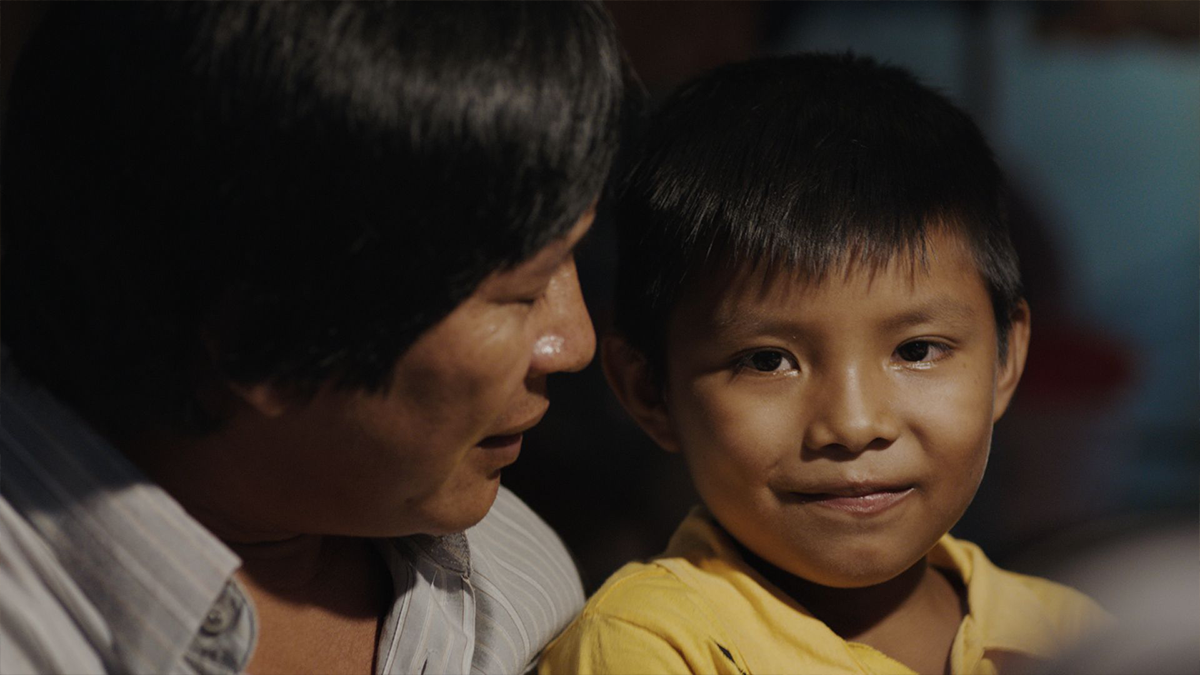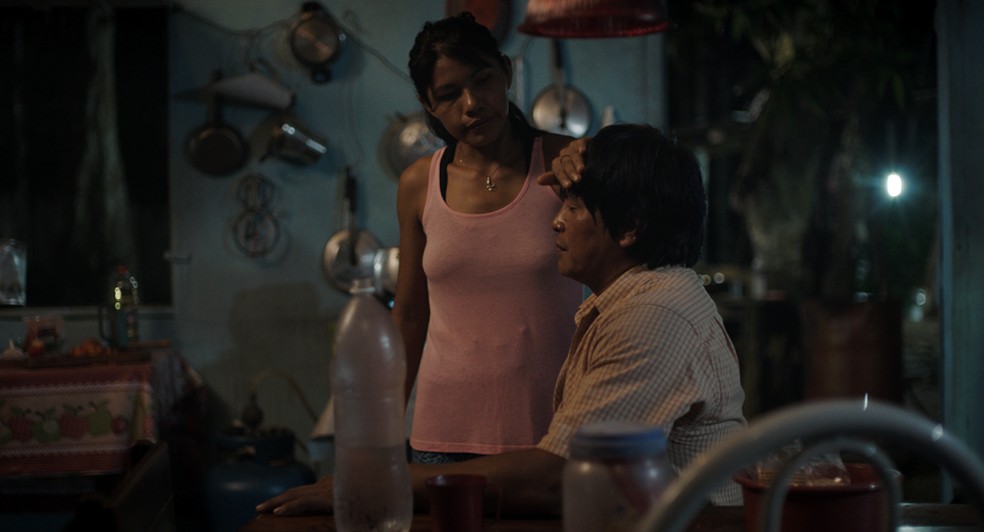
Our pick from Brazil.
A febre is a subtle take on cultural and invidual identitity, a magical-realist tale that suddenly turns into a painfully severe insight of contemporary Brazil, a country steeped in both pluralism and hatred. This hidden gem from 2019´s festival season digs into the current socio-political crisis that is shifting Latin American societies, which seem incapable of fully recognizing diverse identities and keep defined by prejudice and conflict. Between a magical realist tale and a political exposé, this film stays with us for long.
Justino´s story, told in a handful of scenes that repeat themselves, is the story of a conflict: the conflict between the common man and the threat of solitude, which seems to generate a feeling of dread that is almost permanent for him. As a worker in a powerful local factory, Justino supervises cargo operations day by day, whereas his family life is affected by his tense relationship with her daughter, Vanessa. Vanessa has decided to leave town to study medicine in Brasilia. As Vanessa’s departure is coming, a series of estrange events seem to affect Justino: a new, bigoted employer arrives to take his place in the night shift, a dangerous and unknown creature is believed to be wandering around the town and a mysterious fever takes over Justino without explanation.
Maya Da-Rin has crafted a complex portrait of contemporary Brazil, one that explores the intimate connections between conflicting ethnicities, the rise of far-right figures and an abrasive religious faith. These elements, once tied together, establish some sort of contradictory, even paradoxical identity, which doesn’t seem to represent people of indigenous background like Justine himself. Da-Rin has carefully established this dynamic with a pretty ordinary story, thus proving the state of extreme polarization and hatred in Brazil. When the new coworker celebrates Bolsonaro´s rhetoric against the indigenous communities, the audience is not surprised: this appears to be a regular day in a country that moves towards denying itself. When Vanessa expresses her needs to abandon Manaos and the jungle, she is showing the identity breakage so others have experienced.

Although A febre can be easily labeled as a political allegory, we cannot deny the powerful emotional conflict at its core. The film manages to work as a quiet spiritual drama on the unredeemable differences between present and past, tradition and modernity, a conflict vividly reflected in the generational gap between Justino and Vanessa. This is the same conflict that Justino faces in the outside world: he cannot embrace his indigenous identity without facing a bigoted response from Western Brazil, and he cannot partake in the Western system without feeling like a traitor, a pariah.
A febre works because it relies on implicit criticism to the status quo, never forcing the audience to take a political stand or to reject a specific agenda. Da Rin´s criticism relies on little changes in its protagonist´s routine, words barely spoken, a sudden change of humor that tends to be both unexpected and definitive. The repetitive style of the film forces us to pay attention to detail, and to experience Justino´s subtle degradation, who gets even more affected due to the fever. This sort of day-to-day absurdism (a mysterious disease that affects the most noble person of the film) gives the film an existentialist eerie. But, against the noticeable and extravagant suffering from characters in existencialist narratives like Antoine Roquetin and Gregor Samsa, Justino´s drama is more of a silent conviction, an almost invisible pain that cannot be explained, which reinforces the protagonist´s loneliness.

Maya Da-Rin has a profound eye for detail. She is capable to focus her camera on the disturbing aspects of everyday life, leaving the characters to evolve by themselves, without an excessive intromission from the text. The guard that shares a locker with Justino seems to be a common, working class guy. Vanessa seems to be one those daughters who scape paternal protection ir order to get a better life for themselves. Justino himself, impotent and almost unmovable against the tragedy that surrounds him, seems to be one of many that try to live their pain in denial, with a gentle look, trying to find any reason to just keep going. From their most intimate side, the characters seem likable and strange to us.

How much can we learn about someone based on a casual conversation? The scenes of Justino and his relatives, who try to remember a past, simpler life in rural Brazil, work as a direct confrontation with the past, a burden defined by doubt and sorrow. Justino then, cannot return to pre-Western lifestyle but is still a foreign in the modern, concrete-based society. At least that’s the way Da-Rin films him in silent, steady shots around Manaus.
It is difficult not to be overcome by emotion with a film that unapologetically digs into deeply complex territory in such a personal way. Of course, this comes with a risk. At some point, A febre can feel soporific, as numb as its protagonist´s state of mind, in a ultra-realist depiction of Justino´s stupor. The fact that Justino barely speaks, despite reviving the mystery, doesn’t help us to answer any questions about him, which deter us from fully understanding his misery and sense of guilt. We can still affirm that the aesthetic approach finally pays off, as the aura of reverie gives the audience the chance to contemplate, just like Justino, the sudden changes in a world that we cannot understand and the people we love.

We can affirm that the questions left by A febre will also remain within Latin American idiosyncrasies for a long time. The Kafkaesque nightmare that Maya Da-Rin has crafted forces us to move around anxiety and melancholia, as we tend to forget our own past and we are just to afraid of what the future may bring. But, just like Justino, most of us will still try to grasp to any sort of belief -the love for our identity, our family and the hope that comes within- so we can get through a world we cannot clearly identify yet. Justino´s resilience is, nonetheless, a powerful, standing prayer.



